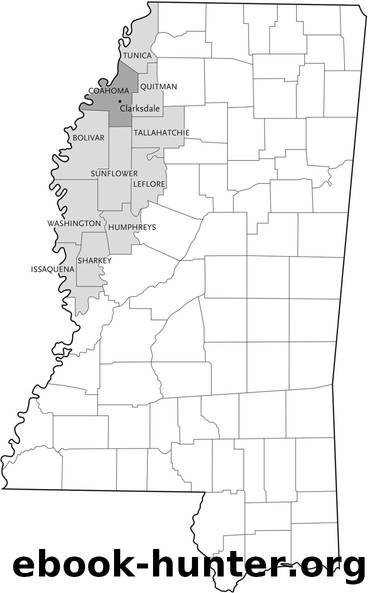I Don't Like the Blues by B. Brian Foster

Author:B. Brian Foster [Foster, B. Brian]
Language: eng
Format: epub
Tags: Social Science, Ethnic Studies, American, African American & Black Studies, Music, Genres & Styles, Blues, Ethnomusicology
ISBN: 9781469660431
Google: KWHdDwAAQBAJ
Barnesnoble:
Goodreads: 53235541
Publisher: UNC Press Books
Published: 2020-10-08T02:37:26+00:00
Porch
The night made the flames of our candles seem dim and the moon seem like a streetlight, and Chester Buttsâs voice seem like a sermon.
âI donât know if Iâm the only one that feels this way, but Iâm tired,â he said. He was standing on the porch of Mrs. Millie Monroe. I was standing in the front yard, among some 100 people, us all gathered for a candlelight vigil. The week before, Mrs. Millie had been sitting with her husband when they heard a knock at the door. When she answered it, a masked man shot her from from point-blank range. âItâs sad,â Dahleen Atkinson-Knowles had told me earlier that day at The Stoe, as we both wondered aloud why so many people seemed to â[go] too soon.â
âItâs sad,â a woman said from some place in front of me, her voice louder than our murmurs, as the whole town seemed to wonder in quiet what it meant to remain.
âEnough is,â Chester called out.
âEnough!â We responded.
âIt has to stop,â he called again.
âYes!â Again, the woman was louder than everyone else.
For a while people kept coming, piling and squeezing into the yard, eventually spilling and pouring into the street. Eventually they stopped coming, and we all just stood among each other, all 150 of us, quiet but for a murmur, dark but for the dim flames of our candles, tired but for something different.
âWe have to keep the fire going,â Chester said, his voice weaker than earlier but still clear, still a sermon. âWe cannot give up.â
Chesterâs words were as stirring as they are illuminating: it is possible to render the Black American story as one or another metaphor about fire and burning. Olaudah Equiano, who spent a portion of his early life serving the captains of slave ships, wrote of enslavement that it worked to âdepress the mind [of enslaved Black people], and extinguish all its fire.â Black abolitionist and writer Frederick Douglass noted that âit is not light that [the nation] needs, but fire.â And Zora Neale Hurston helped make Fire; and James Baldwin wrote The Fire Next Time, and Jesmyn Ward culled The Fire This Time; and the arc of Richard Wrightâs life, as documented in the opening line of Black Boy, began in fire: âOne winter morning in the long-ago, four-year-old days of my life I found myself standing before a fireplace, warming my hands over a mound of glowing coals, listening to the wind whistle past the house outside.â6
In the popular imagination, fire and burning equate to persistence and hopeful expectation. To âlight a fire underneathâ something is to compel it to action. A âburningâ desire is an infinite and insatiable one. They say there is no smoke without fire, which, I suppose could mean there is no âstruggle without progressâ; and Black Americans must always have fire, and smoke, and more progressâor so the story goes. When Equiano wrote that enslavement was about extinguishing the fire in the minds of Black people, he was claiming that slavery was, above all else, an apparatus meant to manage, curtail, and repress possibility.
Download
This site does not store any files on its server. We only index and link to content provided by other sites. Please contact the content providers to delete copyright contents if any and email us, we'll remove relevant links or contents immediately.
The Goal (Off-Campus #4) by Elle Kennedy(12450)
Kathy Andrews Collection by Kathy Andrews(10559)
Diary of a Player by Brad Paisley(6872)
What Does This Button Do? by Bruce Dickinson(5537)
Assassin’s Fate by Robin Hobb(5255)
Big Little Lies by Liane Moriarty(4892)
Pale Blue Dot by Carl Sagan(4018)
Sticky Fingers by Joe Hagan(3459)
The Heroin Diaries by Nikki Sixx(2942)
The Death of the Heart by Elizabeth Bowen(2910)
Beneath These Shadows by Meghan March(2730)
The Help by Kathryn Stockett(2708)
Confessions of a Video Vixen by Karrine Steffans(2682)
How Music Works by David Byrne(2539)
Jam by Jam (epub)(2496)
Harry Potter 4 - Harry Potter and The Goblet of Fire by J.K.Rowling(2422)
Strange Fascination: David Bowie: The Definitive Story by David Buckley(2371)
Petty: The Biography by Warren Zanes(2241)
Darker Than the Deepest Sea by Trevor Dann(2214)
